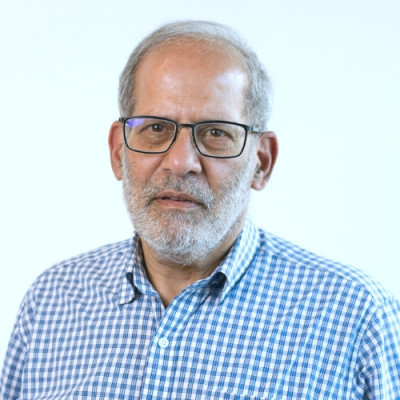Dr Mahanty is an infectious diseases specialist and physician-scientist whose research focuses on host-parasite interactions in the pathogenesis of parasitic infections. He received his medical training at UNSW, Sydney and Infectious Diseases training and a Master of Public Health at the University of Oklahoma, USA. After clinical specialisation, he pursued a career in research on parasite immunology, working at the National Institutes of Health (NIH), Bethesda, Maryland, McGill University, Montreal, Canada and the Centers for Disease Control in Atlanta. After 13 years at the NIH as a Physician-Scientist, he joined the University of Melbourne in January 2017 as an Associate Professor at the Doherty Institute and the Royal Melbourne Hospital's Victorian Infectious Diseases Service (VIDS), where he served as an expert on human parasitic infections and agents that cause viral haemorrhagic fever. His research interests are in the mechanisms of immunity against malaria and immunopathology of intestinal helminths.
-
Key Achievements
-
Through his research involving the study of cellular immune responses in the laboratory and in clinical settings he has made significant contributions to our understanding of immunoregulation in human filarial infections, malaria vaccine immunology and the pathogenesis of human cestode (tape worm) infections. Since 2007, his research has focused on cysticercosis, specifically, on the role of immunopathology in pathogenesis of neurocysticercosis. In collaboration with Dr Theodore Nash, he developed and exploited animal models of neurocysticercosis to study the regulation of inflammation in the central nervous system. The elucidation of immune pathways to pathology in these models have led to treatment strategies to inhibit inflammation in the central nervous system following treatment of cysticercosis with anthelmintics in humans.
- Cytokine control of parasite-specific anergy in human lymphatic filariasis. Preferential induction of a regulatory T helper type 2 lymphocyte subset
Comment: One of the first studies to demonstrate in vivo immune deviation associated with helminth infections
- Cutting edge: impairment of dendritic cells and adaptive immunity by Ebola and Lassa viruses
Comment: The first demonstration of immune evasion by Ebola and Lassa fever viruses in human infections
- Sensitive in vitro system to assess morphological and biochemical effects of praziquantel and albendazole on Taenia solium cysts
Comment: An innovative biochemical screening assay for anti-parasitic action of anthelmintics, applicable for initial selection of new (or re-purposed) anthelmintic drugs
- Post-treatment vascular leakage and inflammatory responses around brain cysts in porcine neurocysticercosis
Comment: First study to directly demonstrate disruption of the blood brain barrier and identify potential pathogenetic mechanisms in a natural model of neurocysticercosis
- A Comparative Study of Peripheral Immune Responses to Taenia solium in Individuals with Parenchymal and Subarachnoid Neurocysticercosis
Comment: One of the first investigation of the nature of the immune responses associated with different clinical manifestations of neurocysticercosis in humans
- Mahanty S, Orrego MA, Cangalaya C, Adrianzen M.P., Arroyo G, Calcina J, Gonzalez AE, García HH, Guerra-Giraldez C and Nash TE for the Cysticercosis Working Group in Peru. TNF-a blockade suppresses pericystic inflammation following anthelmintic treatment in porcine neurocysticercosis. PLoS Negl Trop Dis. 2017 (in press)
Comment: First demonstration of inhibition of pericystic inflammation by TNF-a blockade using a licenced biologic. This leads to new strategies for managament of post-treatment brain inflammation in humans
Publications
Research Groups
-
Mahanty group
Malaria is a disease of global importance and a major threat to health security in endemic regions. The focus of the Mahanty group's research is on the pathogenesis and immunology of malaria. The goal of their research studies is to elucidate the mechanisms underlying the clinical severity of illness caused by human infections with Plasmodium falciparum, the parasite responsible for the majority of cases of severe malaria, and to better understand protective immune mechanism in the human host.
Lab Team
-
Head of the Malaria Laboratory
-
David Grimson
Masters student
Full University of Melbourne profile



